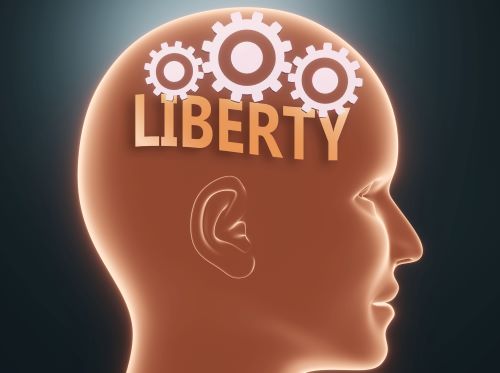Liberty Matters
Natural Rights and Moral Autonomy": A Reply to David Gordon
 David Gordon suggests that liberal defenders of inalienable rights might have justified those rights by appealing to social utility in some sense.
David Gordon suggests that liberal defenders of inalienable rights might have justified those rights by appealing to social utility in some sense.Let us first keep in mind that the liberal doctrine of inalienable rights first arose in regard to freedom of religion, or “liberty of conscience.” Although advocates of religious freedom often argued that freedom would lessen conflicts in society, this was an ancillary argument, not a primary one.
There were several basic arguments for freedom of religion. First, this right was often said to be “inalienable” because it is literally impossible to transfer one’s ability to reason and form rational beliefs to another person. Thus “inalienable” in this sense refers to rights that cannot be transferred to another, not to rights that merely should not be transferred to another. If the subject of a right -- such as the ability to reason and judge -- cannot be alienated, then neither can the right associated with that subject.
Related Links:
Another common argument – one found in some early Christian advocates of toleration, such as Tertullian and Lactantius, as well as later liberal thinkers, such as the Levellers and John Locke – was that beliefs per se cannot be compelled. If we don’t see or understand the evidence for something, then no amount of coercion will change our minds. This was an adjunct to the first argument, presented above; in both cases the conclusion was that coercion is useless in matters of belief. Neither of these arguments appeals to social utility.
Related Links:
There was also the argument -- one that rose to prominence after the Protestant Reformation -- that one’s religious beliefs are exclusively a matter between oneself and God, for it is to God that we are ultimately accountable. Again, no appeal to social utility is evident here.
Related Links:
When the inalienable right of liberty of conscience was extended beyond religion to matters like charity – as we find in Herbert Spencer’s earliest extended defense of freedom, The Proper Sphere of Government (1842) – one argument was that only good works voluntarily undertaken can have moral value. But the main argument was that to trespass on the sphere of conscience was to violate the moral autonomy of others – to deny their moral status as rational agents, in effect. At times this moral autonomy was said to be a necessary precondition for the individual to achieve happiness, but this was not an appeal to social utility per se. Would “society” be better off if inalienable rights were respected? Yes, of course, but to call attention to the probable consequence was not part of the justification in any fundamental sense. Rather, when push came to shove, the basic contention was that there is a right way to deal with human beings and a wrong way to deal with human beings, whatever one’s estimate of the social consequences might be.
I agree wholeheartedly with David’s last paragraph: “To say that social utility is best promoted by respecting a sphere of rights is not sufficient … to justify the claim that each person has certain moral, or natural, rights,” etc. I think David put the matter very well.
Copyright and Fair Use Statement
“Liberty Matters” is the copyright of Liberty Fund, Inc. This material is put on line to further the educational goals of Liberty Fund, Inc. These essays and responses may be quoted and otherwise used under “fair use” provisions for educational and academic purposes. To reprint these essays in course booklets requires the prior permission of Liberty Fund, Inc. Please contact oll@libertyfund.org if you have any questions.